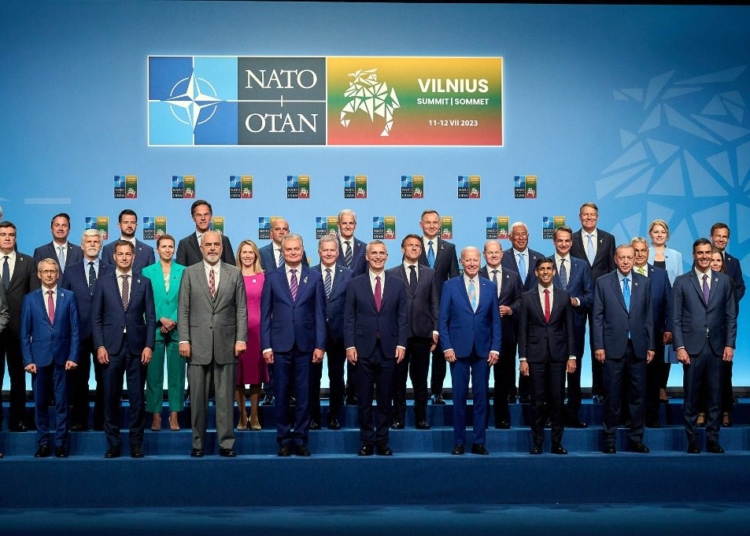This content provides an introduction to the topic of reevaluating NATO in today’s world. It discusses the history and role of NATO, as well as the challenges it currently faces. These challenges include evolving security threats, changing geopolitical dynamics, burden sharing, and internal disagreements. However, the content also highlights opportunities for NATO, such as enhanced cooperation with non-NATO allies, expanding its mandate to address new security threats, and investing in technological advancements. The conclusion emphasizes the importance of reevaluating NATO to ensure its relevance and effectiveness in the face of a rapidly changing global landscape.
Reevaluating NATO: Challenges and Opportunities in Today’s World
Introduction
The North Atlantic Treaty Organization (NATO), formed in 1949, has been a key pillar of international security and defense cooperation for over seven decades. However, in today’s rapidly evolving global landscape, it is imperative to reevaluate the role, challenges, and opportunities that NATO faces.
The Role of NATO
NATO was originally established to counter the Soviet Union during the Cold War. Its primary objective was to provide collective defense for its member states, ensuring that an attack on one member would be considered an attack on all. While the threat landscape has drastically changed since then, the core principle of collective defense remains intact.
The Challenges
NATO faces several challenges in today’s world. Firstly, there is an evolving security environment with non-traditional threats such as terrorism, cyber warfare, and hybrid warfare. These challenges require NATO to adapt and develop new strategies to effectively address them.
1. Changing Geopolitical Dynamics
The geopolitical dynamics in the world have shifted since NATO’s inception. The rise of emerging powers like China and the resurgence of Russia have altered the international balance of power, necessitating NATO to reassess its strategic priorities in order to effectively address these changes.
2. Burden Sharing
Another significant challenge NATO faces is the issue of burden sharing among its member states. While NATO’s principle of collective defense remains strong, there are concerns that some member countries are not fulfilling their financial commitments to defense spending. This imbalanced burden sharing erodes NATO’s capabilities and undermines its unity.
3. Internal Disagreements
NATO consists of 30 member countries, each with their own national interests and priorities. Internal disagreements and differing strategies among member states can hinder consensus on important decisions within the alliance. This poses a challenge to the effective functioning of NATO as a unified organization.
The Opportunities
Despite the challenges, NATO also possesses several opportunities to evolve and strengthen its role in today’s world.
1. Enhanced Cooperation with Non-NATO Allies
NATO can explore possibilities for enhanced cooperation with non-NATO allies in order to tackle common security challenges. Strengthening partnerships with countries like Australia, Japan, and South Korea can bring additional capabilities and expertise to the alliance.
2. Expanding the Scope of NATO’s Mandate
NATO’s traditional focus has been on collective defense. However, it can expand its mandate to include new security threats such as cyber warfare and terrorism. By doing so, NATO can project its relevance in the evolving security landscape and contribute to global stability.
3. Investing in Technological Advancements
Rapid advancements in technology, including artificial intelligence, autonomous systems, and space capabilities, present opportunities for NATO to develop new defense strategies. By investing in research and development, NATO can leverage these emerging technologies to enhance its capabilities and ensure its readiness for future challenges.
Conclusion
In conclusion, reevaluating NATO’s role, challenges, and opportunities is crucial in today’s world. With a changing security environment and emerging threats, NATO must adapt and evolve to remain a relevant and effective alliance. By addressing challenges such as changing geopolitical dynamics and burden sharing, and seizing opportunities like enhanced cooperation and technological advancements, NATO can position itself as a strong collective defense organization for the years to come.













